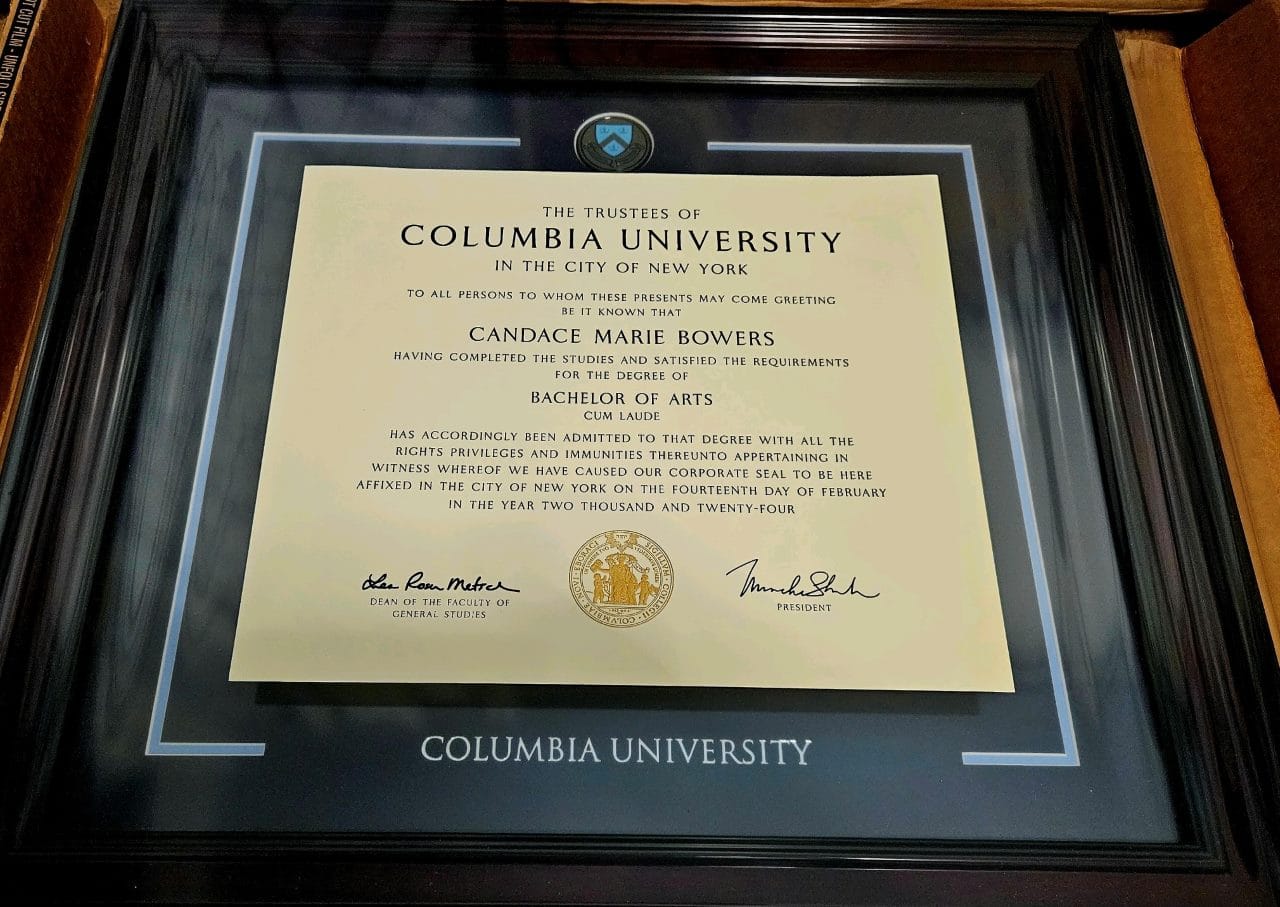What Is Cum Laude? Honor Designations in 2025 Explained

In the world of academia, Latin runs abound. From species names in science to faculty titles, students are surrounded by the ancient remnants of a world that no longer exists but very much still has its influences. One of these Latin phrases is cum laude, and if it wasn't on your radar before, perhaps it will be as your graduation date nears.
Cum laude is a Latin phrase that translates to "with praise." It's an academic honor given to students who have shown exceptional excellence in their studies. Essentially, it's a way for educational institutions to acknowledge and "praise" outstanding academic achievements. Many students receive recognition as having "graduated cum laude."
To earn the cum laude honor, students typically need to meet specific criteria:
- GPA: Maintaining a high grade point average is crucial.
- Class Rank: Some institutions consider how students rank within their graduating class.
- Credit Hours: Completing a certain number of credit hours may also be required.
Earning a bachelor's degree is no small feat. To make sure all your focus can go towards your studies, sign up for a free applicant profile on Bold.org and make sure finances are never a worry!

A Closer Look at Cum Laude
History of Cum Laude
Cum laude originates from the Latin language, a nod to the ancient Roman Empire's influence on education. In medieval European universities, where Latin was the lingua franca for scholars, rewarding outstanding student achievements was done through cum laude, among other distinctions.
As colleges evolved, they continued to honor their top-performing students with distinctions like cum laude. This practice spread across continents, particularly influencing higher education and high school systems in the United States and Europe. Today, it remains an esteemed mark of academic prowess.
Create Your Free Profile to Apply for Scholarships Today!Examples of Cum Laude Usage
At prestigious institutions like Harvard University, earning cum laude often requires a GPA that places students within the top 20-30% of their class. On the other hand, a smaller liberal arts college might have slightly different thresholds but still maintain rigorous standards to ensure that only deserving candidates are honored.
Public Universities
Large state schools often have graduated tiered systems for honors that include cum laude alongside magna cum laude and summa cum laude (the highest honor). Each level has distinct GPA requirements.
Private Universities
Private institutions might add additional layers, such as community service or leadership roles when considering candidates for cum laude honors.
For more information about the difference between public and private institutions, check out our guide on private colleges!

The Hierarchy of Latin Honors: Differentiating Cum Laude, Magna Cum Laude, and Summa Cum Laude
Latin honors represent a tradition of academic excellence that dates back centuries. These accolades are a testament to a student's dedication, hard work, and intellectual prowess. Among the most commonly awarded Latin honors are cum laude, magna cum laude, and summa cum laude. Each of these designations signifies a different level of academic excellence on a student's diploma.
Understanding Latin Honors
Latin honors are used by educational institutions worldwide to recognize students who have demonstrated exceptional academic performance. Here’s a breakdown of the highest honors in three main tiers:
- Cum Laude (With Praise): This is often considered the initial level of distinction. It recognizes students who have achieved a commendable grade point average (GPA) but may not be at the very top of their class.
- Magna Cum Laude (With Great Praise): This middle tier is awarded to students who have achieved a higher GPA than those receiving cum laude honors. It reflects an even greater level of academic achievement.
- Summa Cum Laude (With Highest Praise): The pinnacle of academic recognition, summa cum laude is reserved for students with the highest GPAs in their graduating class. As the highest honor, summa cum laude demonstrates exceptional scholarly accomplishments and often requires meeting stringent criteria beyond just GPA (e.g., an honors thesis).

Differentiating Among the Honors
While all three distinctions signify outstanding academic performance, there are nuances that set them apart:
- GPA Thresholds: Each college sets its own GPA requirements for these honors. Typically, cum laude might start around 3.5-3.7, magna cum laude around 3.8-3.9, and summa cum laude at 4.0 or higher.
- Additional Criteria: Some universities consider factors beyond GPA when awarding these honors:
- Course Rigor: Advanced coursework or honors classes may influence eligibility.
- Class Rank: Being in the top percentage of the graduating class can be crucial for magna and summa distinctions.
- Credit Hours: Completing a certain number of credits or specific courses may also be required.
Whatever stage of the academic system you're in, we've got you covered! Check out these scholarships for high school students and undergraduate college students to start saving now!
Commonalities and Distinctions
Commonalities:
- All three honors use Latin terms derived from historical academic traditions.
- They represent high levels of academic achievement recognized by educational institutions globally.
- Receiving any level of Latin honors is prestigious and can significantly enhance resumes and job applications.
Distinctions:
- Level of Achievement: Each honor represents progressively higher levels of academic excellence.
- Institutional Criteria Variability: Different colleges and universities may have unique criteria for each honor level.
- Recognition Impact: While all Latin honors are impressive, employers might perceive summa cum laude as more prestigious due to its stringent requirements.
Dive deeper into the world of Latin honors with our guide to summa cum laude!

Academic Requirements: GPA and Beyond for Cum Laude Eligibility
GPA Requirements for Latin Honors
The Grade Point Average (GPA) often stands as the cornerstone in determining eligibility for cum laude. While each institution sets its specific thresholds, a common benchmark for earning this graduation honor usually falls around a 3.5 to 3.7 GPA on a 4.0 scale. For extremely competitive schools such as Harvard or New York University, the threshold may be somewhere closer to 3.9.
Additional Criteria: Class Rank and Credit Hours
While a specific grade point average is pivotal, other factors may come into play:
- Class Rank: Some universities also consider a student’s ranking within their graduating class. For instance, you may only be eligible if you rank in the top 20%.
- Credit Hours: Completing a minimum number of credit hours at the university granting the degree can be another criterion. This ensures that students have spent adequate time at the university to merit the honor.
These additional criteria help ensure that the recognition of cum laude is not only based on grades but also reflects sustained effort and commitment to their studies.
Rigorous standards exist not just in graduation honors but also when trying to get into a college. Check out the hardest colleges to get into in this blog post!
The Benefits and Value of Achieving Cum Laude Status
Enhancing Your Resume and Job Prospects
Graduating with cum laude honors is more than just a feather in your academic cap; it's a tangible testament to the labor and love you've poured into your degree. Consequently, employers often sift through countless resumes, and seeing "cum laude" can make yours stand out. It signals that you not only met but exceeded the academic requirements of your degree program.
Perceived Value by Employers
Employers are keenly aware of what it takes graduating students to achieve academic honors. For many, it's an indicator of several valuable traits:
- Intellectual Capability: A strong GPA suggests a robust understanding of your field.
- Work Ethic: Maintaining high grades over several semesters shows consistency and dedication.
- Time Management Skills: Balancing coursework, projects, and possibly even extracurricular activities requires exceptional organizational skills.
While some employers might not explicitly state they prefer candidates with Latin honors, many recognize the added value these distinctions bring to their team.
Are you still in school? Use your academic prowess to apply for merit-based scholarships!
Impact on Career and Earnings Potential
The long-term benefits of graduating cum laude extend beyond immediate job placement. Studies have shown that individuals with higher academic distinctions often enjoy:
- Faster Career Advancement: Higher initial placement can lead to quicker promotions.
- Greater Earnings Potential: According to various salary surveys, graduates with honors tend to command higher starting salaries compared to their peers without such distinctions.
Studies have also found that graduates with high honors typically earn 10-15% more in their first jobs than those without, though this effect, known as a signaling benefit in the labor market, usually disappears by the third year after graduation.
For college students looking to get a jump on career opportunities, check out our guide to remote jobs for college students!

Frequently Asked Questions About Cum Laude
I graduated cum laude; how do I list it on my resume?
Listing cum laude on your resume is straightforward. Place it in the education section under your bachelor's degree. For example:
Bachelor of Arts in English, cum laude
XYZ University, May 2023
Can graduate students graduate cum laude?
Typically, cum laude honors are awarded at the undergraduate level. Graduate programs usually have different criteria for academic distinction, such as Dean's List or specific awards related to research and thesis quality.
Does it matter to employers whether I have a cum laude or magna cum laude?
While both honors signify academic excellence, magna cum laude and summa cum laude can indicate higher academic achievement than cum laude. However, any Latin honor showcases your dedication and hard work, which employers value highly. The impact may vary depending on the industry and the specific employer.
Interested in anything education-related? Check out our scholarship blog, written by students for students!